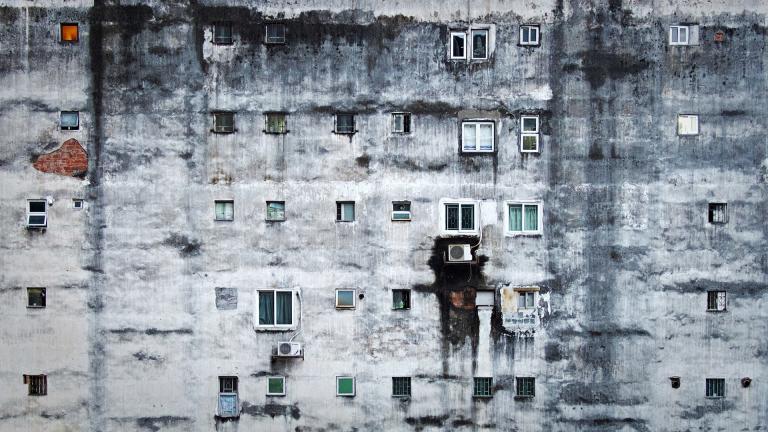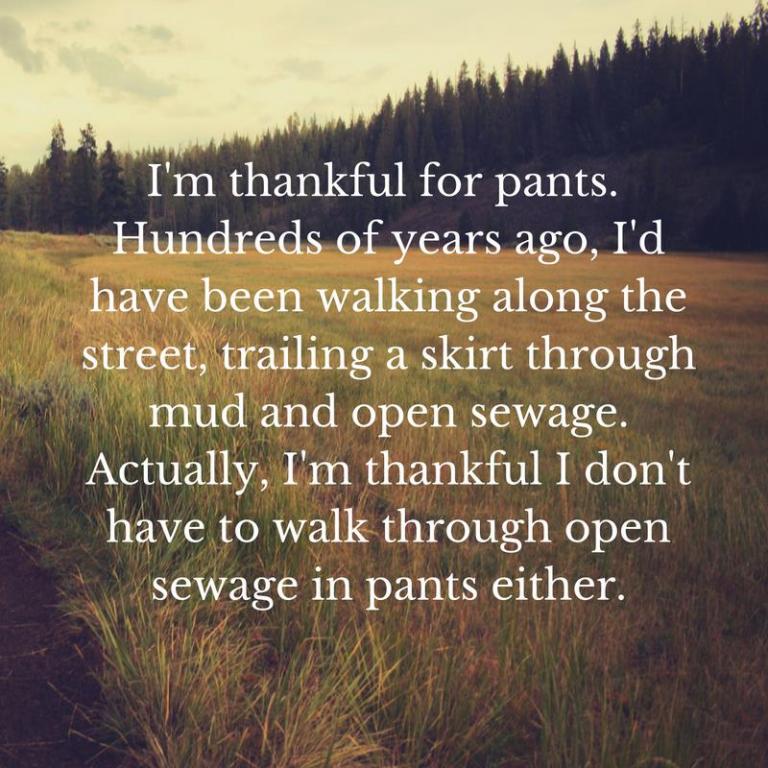
I’ve seen several discussions about Marie Kondo’s new Netflix show. I’ve been aware of the idea of letting go of items that don’t bring you joy for a while, but I could never see how something like that would apply to a person like me.
I hate clutter and all, but I can’t afford to get rid of anything I have. I might have two sauce pans, but that’s because I know darn well if the handle breaks off my main pan, I can’t afford to buy a new one. Sometimes “clutter” in a home is a function of poverty, not consumerism.
To be clear, I realize I’m not in the target audience for Marie Kondo’s methods. I generally have a “to each his own” attitude when something clearly isn’t for me, and I’m all for teaching the middle-class to slow their roll.
My concern is when these ideas are universalized. I’m all for being grateful and finding joy. I’ve done a lot of both in my life, but at a certain point, emphasizing joy and gratitude can drive a class wedge between us.
A few years ago, I saw people on Facebook posting one thing they were thankful for each day leading up to Thanksgiving. And, you know what? It really irritated me. Most of the posts came across as humble-bragging, and I was about as poor as I’d ever been at the time. I became more and more frustrated as the month went on and I saw all of these middle-class (mostly) women express over-the-top gratitude for things like expensive vacations people like me could never experience.
I mean, that’s great you have a new house with four bathrooms that bring you a bunch of joy, Janice, but I think you’re missing the point.
I started posting sarcastic thankfulness posts, expressing my gratitude for the most basic things we all take for granted like indoor plumbing, eyeglasses, and the fact we don’t live on a gas giant because that would make it really hard to walk to the bus stop.

My point was it’s ridiculous to go around, publicly gushing gratitude for things we don’t actually need, especially when those things are out of reach for so many equally deserving people.
Gratitude doesn’t work without some level of self-awareness. It seems to me like most people don’t understand we have to acknowledge we don’t deserve this thing we have any more than someone else might deserve it in order to truly be grateful.
Can you show true gratitude if you believe you deserve the good things in your life? That you somehow earned them? I’ve never thanked my employer for paying me. I earned that money, so why would I thank my boss?
If we believe we’re owed these precious items in our lives, are we actually grateful for them?

Being grateful for a thing you own isn’t the same as being grateful for the circumstances that allowed you to have that thing. That’s where I find the problem.
When someone feels grateful for their brand new car, they’re actually expressing gratitude for the circumstances that allowed them to purchase that car.
What allowed them to purchase that car? Money. And where does money come from? It doesn’t just come from hard work. It comes from the opportunity to do that work, and we don’t all have equal opportunities to do the work we’re capable of doing.
If I were to express gratitude for the duct-taped car I drove around for a couple of years, what would I actually be expressing gratitude for?
I’d be expressing gratitude for my parents, who found this cheap car for me. I’d be thankful for my father, who drove me over to look at it since I don’t know enough about cars to tell if one is worth the price. I’d be thankful to the man who sold it to me for $200 less than he wanted, even after I explained I wasn’t a college student getting my very first car, like he’d thought (because what woman in her mid-30s buys a duct tape car?)
While acknowledging the good circumstances that led me to this car, I’d also have to acknowledge the negative circumstances that led me to that car. I was too poor to afford a better car because I had to quit my job and move back to Michigan because of a disability, even though I loved living on the west coast and Michigan makes me depressed every winter.
I’d also have to think about how I had no money in my savings account to buy a more reliable car because medical bills from my daughter’s heart surgery and my years of physical therapy had wiped out any chance of building a decent savings account. If I hadn’t had a stalker my freshman year of college, I wouldn’t have lost my academic scholarship and never would have gotten stuck with all this student loan debt. I would have graduated on time and started earning decent money earlier in life, which would have given me more time to save up for the unexpected.
I didn’t expect to have to quit working in my 30s. I didn’t expect to have to eat through my savings and cash out my 401k just to keep the electricity on. I didn’t expect to have to accept toilet paper and tampon charity from family members because SNAP benefits don’t cover toilet paper or feminine products.
Just how grateful should I be for that car when that car is a direct result of my poverty and lack of better opportunities? Should I be equally as grateful as the person with the new car and plenty of toilet paper, even though I’ve worked harder than they have and have faced more challenges than they have, while they just happened to have lucked into better circumstances?

Poverty makes a difference. It’s nice to say we should all the thankful for what we have, but that’s easier to say when you have more than you need. It’s harder to say when you don’t even have what you need.
Instead of being grateful for, or finding joy, in items, I think it’s better to acknowledge our unearned privilege in having the sort of opportunities that brought those items to us.
We live in an incredibly entitled society, and I understand that expressing gratitude is meant to combat that, but it only combats it in middle-class and upper-class homes. For people who live in poverty, pressuring us to express gratitude can come across as an attempt to dismiss our struggles.
The thing is, we are all entitled to certain things. As a child of God, I’m entitled to a life of dignity.
I don’t expect my children to express gratitude to me each day for feeding them. That’s the bare minimum I’m supposed to do as their mother, and it would be ridiculous if I acted like I was doing them some huge favor by handing them a PB&J for lunch.
No person deserves food more than any other person. We don’t earn our right to eat. We automatically have the right to not starve because of our God-given dignity as humans.
Every night, when I pray, I thank God for everything I have, but that’s not so much about physical possessions. I’m thankful for the people in my life who would never let me or my children go hungry. The people in my life who would always make sure we’re out of the snow and rain.
And I’m thankful for all the undeserved opportunities that have come my way too. Sometimes I just happened to be in the right place, at the right time, with the right people and I won out over someone who was more talented than I am, through no fault of theirs.
Other times, someone who wasn’t as talented or hardworking as I was won out. I acknowledge that as well, not because I’m ungrateful, but because it’s the truth.
So, no, I’m not all that “grateful” for the clothes in my closet or the food on my table because those are also deep sources of stress for me. Will there be enough? I can’t untangle that.
I won’t give into the idea that, “It could always be worse” either. Where does that line of thinking end?
You don’t have an income, but at least you haven’t lost your house.
OK, you lost your house, but at least you have your health.
OK, you’ve got a chronic illness now, but at least you’ve got food.
OK, you’re out of food now, but at least you’ve got that fancy pressure cooker your aunt gave you, even if you have no food to put into it. What are you complaining about? Are you ungrateful or something? Plenty of people would love a pressure cooker like that.
I believe there’s a way of being grateful for all the undeserved good opportunities in my life, while also acknowledging all the undeserved negatives in my life as well.
Poverty is a deep injustice in our society, and no amount of finding joy in my broke-down possessions will change that. Things are a means to an end. They serve a function. I don’t find joy in things, and I’m not grateful I’ve had to work 10x as hard as other people to own half as much.
If I got rid of the items that don’t bring me joy, I’d have an empty house. None of my possessions spark joy in me, but these threadbare jeans do spark a fire within me to fight injustice.
If you have more than you need, I absolutely think you should be grateful and acknowledge you aren’t any more deserving of that item than someone else is.
If you don’t even have what you need to live a life of basic dignity, I don’t see any point in being pressured by people with more than they need into expressing an equal amount of gratitude. There’s nothing wrong with acknowledging the truth.












